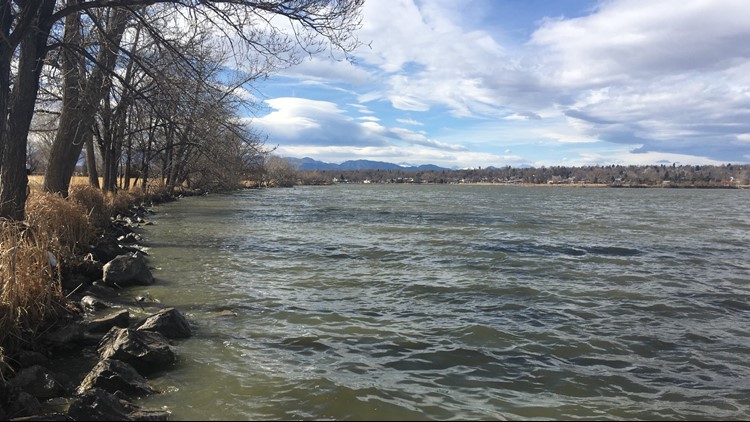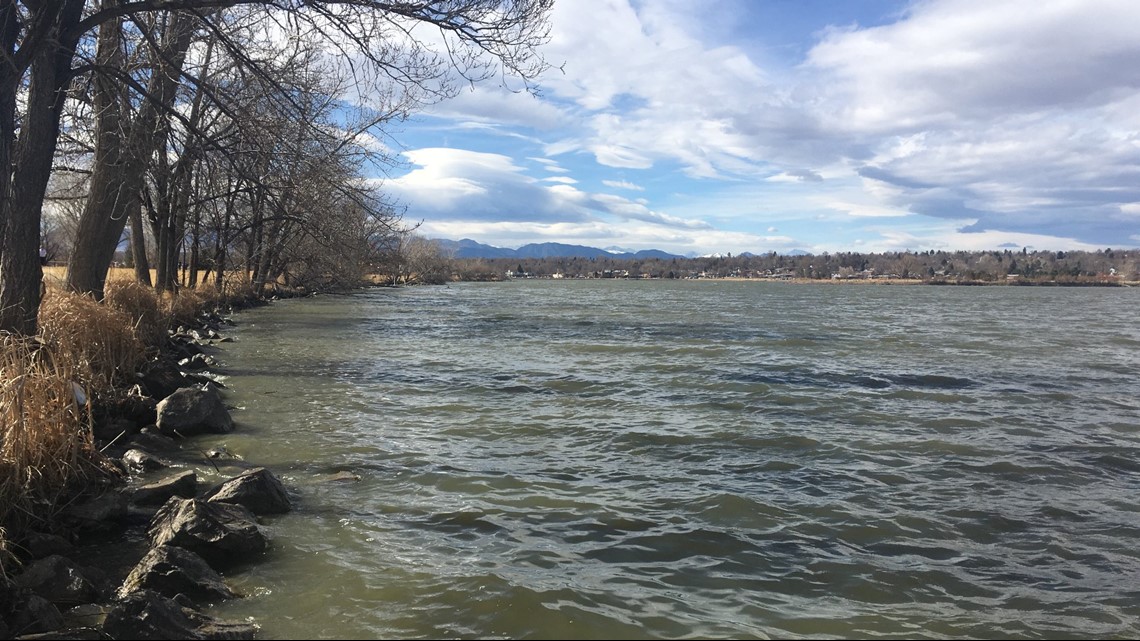
This bloom contains a bacteria that is toxic to pets and could also make humans sick.
DENVER — The city of Denver’s largest body of water will be temporarily closed due to the presence of blue-green algae, which can be poisonous to humans and pets.
Contact with the water at Sloan’s Lake and all recreational activities are prohibited, including fishing, wading, boating and the use of watercraft like canoes, paddleboards and kayaks, according to a news release distributed by the city of Denver on Thursday afternoon.
People visiting the park are warned not to allow their children or pets near the water.
Blue-green algae is otherwise known as “cyanobacteria,” but regardless of what it’s called, it’s bad news. The city said pets can die within hours of consuming the algae, and people can experience a headache, diarrhea, weakness and liver damage.
> The video above is from a previous story outlining the dangers of blue-green algae.
Signs notifying Sloan’s Lake visitors about the presence of algae have been replaced with new material informing people about the closure, the city said.
RELATED: Toxic blue-green algae found at Sloan’s Lake
While there’s no timeline for when that could happen, Sloan’s Lake will reopen when the algae bloom subsides.
This is one of multiple bodies of water throughout Colorado that have had to close in recent weeks. The swim beaches at Cherry Creek and Chatfield reservoirs had to close earlier this month due to the presence of E. coli.
RELATED: Cherry Creek Reservoir swim beach closes due to E. coli, Chatfield reopens
RELATED: Chatfield State Park swim beach closed due to E. coli
Blue-green algae is common in ponds and lakes during the summer months. The blooms tend to clump together near surface water and could be anywhere from bright green to brownish.
There is no known antidote to the toxins for pets, so typically veterinarians have to attempt to flush out the toxins quickly through induced vomiting.
RELATED: Blue-green algae: What it is and how to spot it
SUGGESTED VIDEOS: Latest from 9NEWS













































